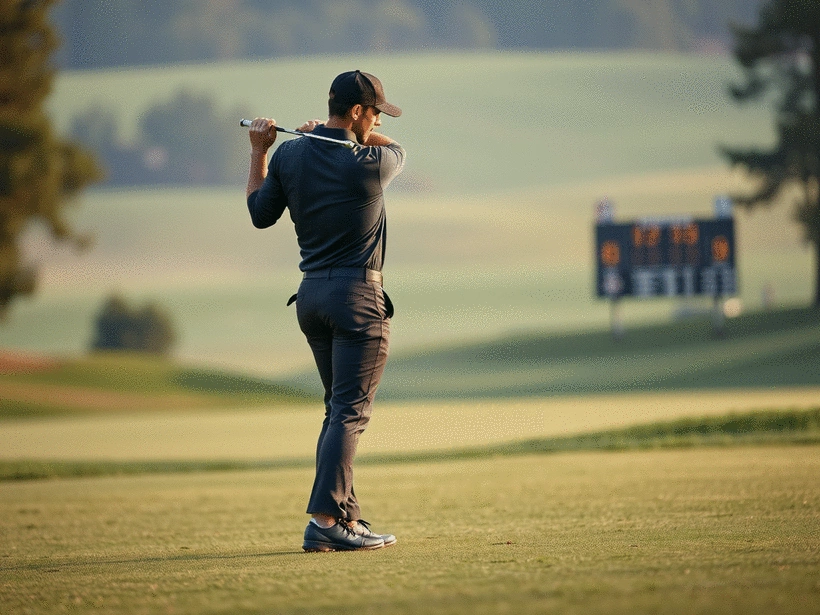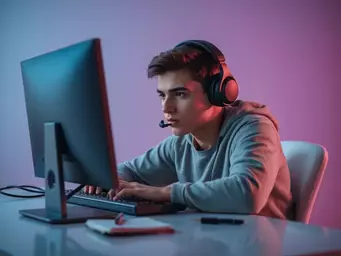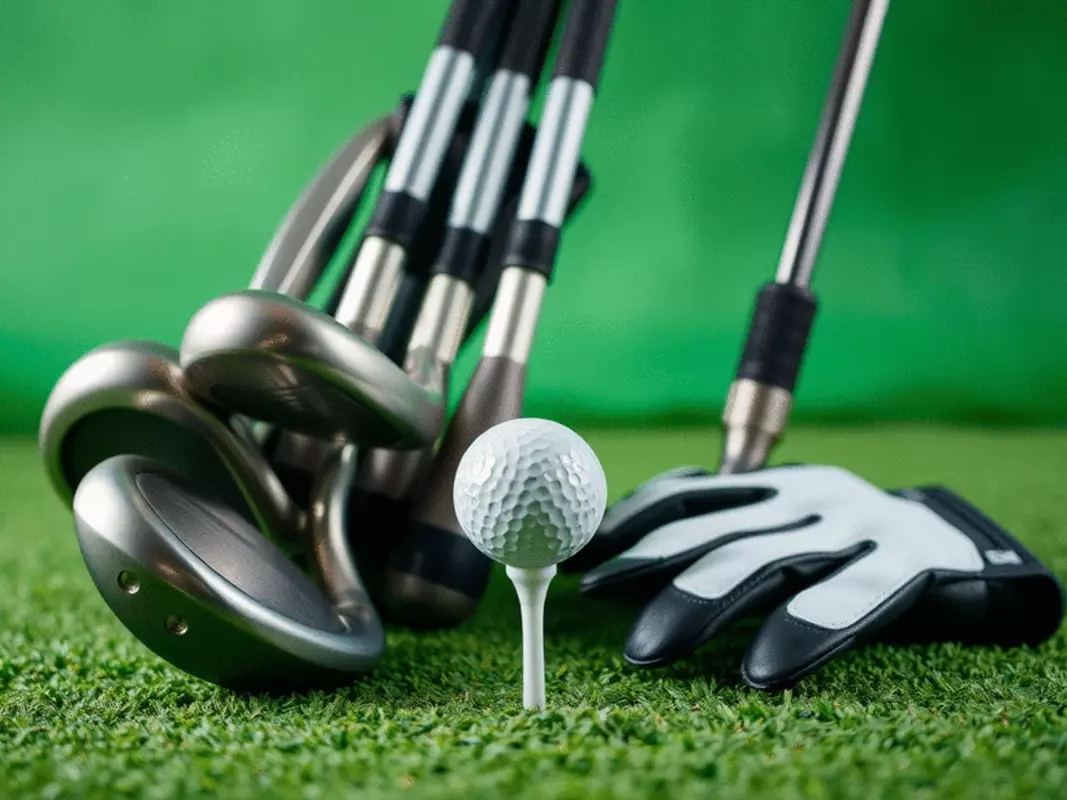Mental Prep for Golf Tournaments

The mind can be an athlete's greatest asset—or their biggest obstacle. In the high-stakes world of golf tournaments, how prepared are you mentally? A strong mental game could be the difference between victory and defeat.
What You Will Learn
- Mental preparation is as crucial as physical skills in succeeding at golf tournaments.
- Understanding tournament pressure can help golfers develop effective strategies to manage anxiety and enhance performance.
- Techniques such as visualization, mental rehearsal, and breathing exercises can significantly improve focus and confidence.
- Personalizing mental strategies is essential; what works for one golfer might not work for another.
Key Pillars of Mental Preparation in Golf
Success in golf tournaments relies heavily on a strong mental game, encompassing focus, stress management, and resilience. These elements are crucial for professional golfers facing intense pressure.
Mental Fortitude for Pros
- ✓ Focus on each shot
- ✓ Stress management
- ✓ Resilience after setbacks
Impact of Tournament Pressure
- ⚠ Increased anxiety
- ⚠ Clouded decision-making
- ⚠ Physical stress responses
Key Mental Toughness Traits
- ★ Confidence in skills
- ★ Adaptability to challenges
- ★ Persistence in improvement
Enhancement Techniques
- ✅ Visualization
- ✅ Breathing exercises
- ✅ Pre-shot routines
Understanding the Importance of Mental Preparation in Golf Tournaments
When it comes to golf tournaments, many players focus solely on their physical skills—swing mechanics, putting techniques, and club selection. However, I can’t stress enough that mental preparation plays an equally crucial role in achieving success on the course. Just like a perfectly executed shot requires practice and precision, so too does a strong mental game. In this section, we’ll delve into why mental strength is indispensable for golfers aiming to excel.
Why Mental Strength is Crucial for Professional Golfers
In the world of golf, the line between success and failure can often be a matter of mental fortitude. Professional golfers face immense pressure to perform consistently, and those who can navigate this pressure tend to stand out. Mental strength enables players to maintain focus, manage stress, and recover quickly from setbacks on the course.
- Focus: The ability to concentrate on each shot without distractions.
- Stress Management: Techniques to handle the nerves that come with competition.
- Resilience: The capacity to bounce back after a poor shot or round.
By building mental strength, golfers can enhance their overall performance and enjoy the game more fully. It’s not just about hitting the ball; it’s about staying engaged and present throughout the round.
Overview of Tournament Pressure and its Impact on Performance
Tournament pressure can be overwhelming, even for seasoned players. When the stakes are high, every shot counts, and this intensity can lead to mental fatigue. Understanding how tournament pressure affects performance is key to developing strategies to manage it. Research has shown that mental training interventions can significantly improve performance under pressure by helping athletes develop psychological skills.
- Increased Anxiety: The fear of disappointing oneself or others can lead to performance anxiety.
- Decision-Making: Pressure can cloud judgment and lead to poor shot selections.
- Physical Responses: Stress often manifests as physical symptoms like increased heart rate and tension in muscles.
Recognizing these elements allows golfers to prepare mentally, ensuring they can face challenges head-on without succumbing to pressure.
The Role of Mental Toughness in Handling Competition
Mental toughness isn’t just a buzzword; it’s a critical component of a golfer's toolkit. It involves the ability to stay calm, focused, and confident under the pressures of competition. As someone who has followed this sport for years, I’ve seen firsthand how mental toughness can be the deciding factor in a tournament. Learning to master the mental game is a key aspect of golf psychology for players at all levels.
- Confidence: Trusting your skills and training during crucial moments.
- Adaptability: Being able to adjust strategies based on course conditions or unexpected challenges.
- Persistence: Continuously striving for improvement, even in the face of adversity.
In my experience, embracing these aspects of mental toughness can significantly enhance a player's performance, creating a pathway to both personal and competitive success.
Interactive Poll: Your Mental Game
As we explore the significance of mental preparation in golf, we want to hear from you! Which mental technique do you find most beneficial for your game?
Summary of Key Takeaways on Mental Preparation for Golf
As we wrap up our discussion on mental preparation for golf, it's essential to reflect on the techniques that can truly enhance your performance on the course. Remember, the mental game is just as important as the physical aspects of golf. By implementing effective strategies, you can set yourself up for success in every tournament!
- Visualization Practices: Create vivid mental images of success to boost confidence.
- Mental Rehearsal: Practice your swings and shots mentally to improve muscle memory.
- Breathing Exercises: Use deep breathing to manage anxiety and maintain focus.
- Pre-Shot Routines: Establish a consistent routine to enhance concentration and performance.
By incorporating these techniques into your training, you can elevate your game and gain a competitive edge. As I often emphasize in my coaching, it’s about mastering both your mind and body! The importance of mental strategies in golf has been increasingly recognized, highlighting their impact on overall performance.
Encouragement to Develop Personal Mental Strategies
Every golfer is unique, and so are their mental strategies. As you explore these techniques, don’t hesitate to tailor them to fit your personal style and preferences. The more customized your approach, the more effective it will be!
- Experiment with different visualization techniques to find what resonates with you.
- Create a pre-shot routine that feels natural and helps you focus.
- Develop coping mechanisms that work best for your temperament and challenges.
Remember, building mental resilience takes time. Be patient with yourself as you develop these skills, and don't be afraid to reach out for support. We're all part of the same golfing community, and sharing experiences can lead to valuable insights!
Frequently Asked Questions About Mental Preparation in Golf
- Q: Why is mental preparation as important as physical skill in golf?
- A: Mental preparation is crucial because it enables golfers to maintain focus, manage stress, and recover from setbacks, especially under the intense pressure of tournaments. It helps in decision-making and ensures consistent performance.
- Q: What are the key pillars of mental preparation for golfers?
- A: The key pillars include focus (concentrating on each shot), stress management (handling competitive nerves), and resilience (bouncing back from poor shots or rounds).
- Q: How does tournament pressure affect a golfer's performance?
- A: Tournament pressure can lead to increased anxiety, clouded judgment in decision-making, and physical stress responses such as an increased heart rate and muscle tension, all of which can negatively impact performance.
- Q: What techniques can golfers use to enhance their mental game?
- A: Effective techniques include visualization practices (mentally rehearsing successful outcomes), mental rehearsal (practicing swings and shots in the mind), breathing exercises (to manage anxiety), and establishing consistent pre-shot routines (to improve concentration).
- Q: Why is it important to personalize mental strategies?
- A: Each golfer is unique, and what works for one may not work for another. Personalizing mental strategies ensures that the techniques are tailored to an individual's style, preferences, and temperament, making them more effective and easier to integrate into their game.
Call to Action: Enhance Your Mental Game Today
Implementing Techniques: Start Your Journey to Mental Mastery
Now that you've gathered essential techniques to enhance your mental game, it's time to start implementing them! Take a moment to reflect on which strategies resonate most with you. Will you begin with visualization, or perhaps focus on breathing exercises? The key is to take that first step toward mental mastery!
- Set a daily practice schedule for your mental techniques.
- Keep a journal to track your progress and reflect on your experiences.
- Share your goals with fellow golfers for accountability and motivation.
By actively engaging in these practices, you'll pave the way for improved performance both on and off the course!
Join the Community: Share Your Experiences and Learnings
We believe in the power of community at iGolf Magazine. Join our community of passionate golfers to share your experiences and learnings regarding mental preparation. Whether it's a story about overcoming nerves or a breakthrough in your visualization techniques, your insights can inspire others on their journey!
- Participate in our forums to discuss mental strategies with fellow golfers.
- Follow us on social media for updates and tips related to mental conditioning.
- Subscribe to our newsletter for exclusive content and expert advice.
Together, we can elevate our mental game and create a supportive environment where every golfer can thrive! Let’s champion one another in this pursuit of excellence!
Recap of Key Points
Here is a quick recap of the important points discussed in the article:
- Mental Preparation is Key: Focus on both physical and mental aspects for optimal performance in golf tournaments.
- Building Mental Strength: Enhance focus, manage stress, and develop resilience to handle tournament pressure.
- Utilize Visualization and Mental Rehearsal: These practices can boost confidence and improve muscle memory.
- Establish Consistent Routines: Pre-shot routines can enhance concentration and performance.
- Customize Your Approach: Tailor mental strategies to fit your personal style and preferences for maximum effectiveness.









